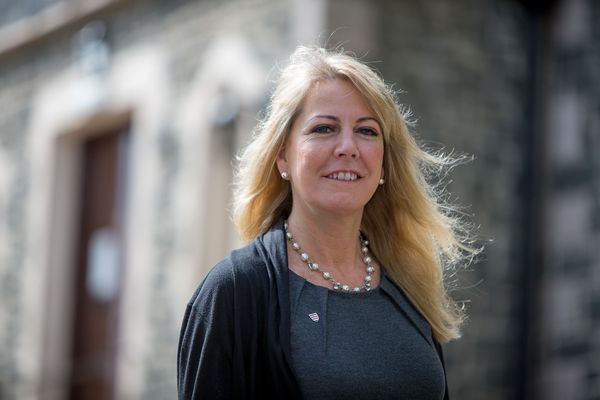

Members of Jersey Overseas Aid, including its Chair, went to Lebanon to visit eight Jersey-funded activities and meet project staff and beneficiaries in Beirut and the Bekaa Valley.
Deputy Carolyn Labey, Chair of JOA, went with Simon Boas, its new director to visit schools, training centres, and a clinic. They also attended counselling sessions and inspected water trucking, all of them funded through a Jersey grant to UNICEF.
Jersey’s £475,000 donation, which was granted in October 2016 for projects focused on needy children in Lebanon. It has assisted over 110,000 children return to formal education, and helped provide safe water for drinking and domestic use for almost 100,000 people, many of whom live in crowded makeshift camps. The Island’s money also contributed to vocational training for older children and breast-feeding and vaccination interventions for infants.
Carolyn Labey commented: “It is humbling to see the fantastic work being conducted by UNICEF and its partners with funding from Jersey. For the price of a few pounds each, the people of our Island have helped transform the lives of some of the most vulnerable children in the world. Furthermore, by helping refugee families in this region, we are increasing the chance that they will one day participate in the reconstruction of their tragic country. I’m incredibly proud of what we’re achieving here, and I’m sure the people of Jersey are too. We have not stood idly by, during one of the worst humanitarian crises since the war.”
Deputy Labey and Simon Boas also met specialists from UNICEF in education, child protection, water, health and sanitation, and held interviews and focus groups with women and adolescents who had benefitted from different projects. They interviewed staff from numerous local and international organisations, including Mercy Corps, Oxfam, Caritas and the Knights of Malta.
The JOA team received a special briefing from the Director of the UN’s Office for the Coordination of Humanitarian Affairs (OCHA) inside Syria, who came from Damascus to meet them. He outlined the main challenges facing the UN and NGOs operating in Syria, and analysed how the situation is likely to evolve in 2017. Through OCHA, Jersey has also been able to support emergency projects inside the war-torn country, including air-drops of food to besieged areas.
Simon Boas said “Trips like this are terrifically useful, as they give donors – and the taxpayers they represent – the chance to monitor and verify the activities they have funded. They also help us target future assistance more effectively. In fact, by enabling us to build connections with staff inside target countries, we become able to fund programmes like UNICEF’s directly, rather than through their UK umbrella organisations, which can actually save us money.”
The Syrian civil war has killed around 316,000 people since 2011 and displaced over 11 million, of whom around 5 million have fled abroad. JOA’s response to this appalling humanitarian crisis has been to focus assistance on Jordan, Lebanon and within Syria itself, to provide lifesaving assistance and to help people stay in or near their homes. With a population of only around 6m, Lebanon has the highest per capita concentration of refugees in the world, hosting more than 1.5 million Syrians, as well as large numbers of Palestinians, Kurds and Iraqis.
Comments
Comments on this story express the views of the commentator only, not Bailiwick Publishing. We are unable to guarantee the accuracy of any of those comments.